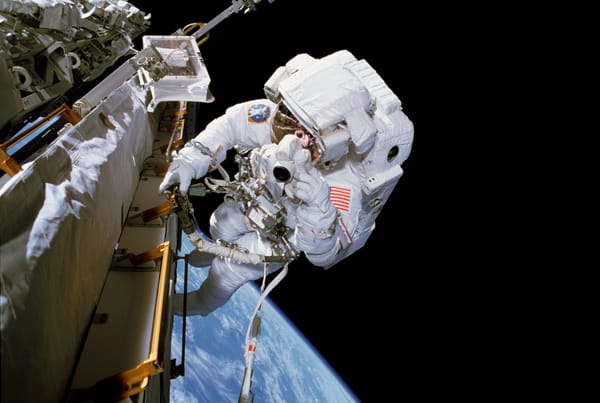"Who are we?"

From '‘The physics community has never split like this’: row erupts over plans for new Large Hadron Collider', The Guardian, March 29, 2025:
However, if the FCC were given the go-ahead, it could lock up funds for decades and end up dictating the direction that particle physics will have to take for much of the century, [DESY Hamburg researcher Jenny] List added. “We will be telling future generations exactly what to do scientifically, and so we need to ask ourselves today: who are we to decide what our grandchildren should research and not research?”
What a powerful argument. And it cuts both ways, too: just as much as we must acknowledge the risks of "locking in" scientists to the FCC while starving other avenues of particle physics research of funds, there is also a well-defined risk in missing a window to fund the FCC while it's open instead of waiting and losing a potentially one-time opportunity.
In an ideal world, physicists may like to pursue as many avenues as possible (towards developing a unified and complete description of the physical universe). Of course, more avenues will be possible if they give up on the FCC and split the money they save to hundreds more of smaller projects. But I think it's also possible to argue building the FCC will itself push physics research in many new directions, providing answers no other experiment can to inform and guide more research. The sword really does cut both ways.
Even in terms of funding: while giving up on the FCC will 'spare' funds that could serve many smaller experiments well, there's no telling if governments will make them just as available for the latter and, equally, if the political will among governments to fund an FCC-like machine will always exist. The language around the FCC's budgeting is also confusing: its $30 billion (Rs 2.56 lakh crore) cost will be spent over decades, not in one shot, and a not insignificant chunk of these expenses will be in the form of people's work-hours and components manufactured by industrial centres in various participating countries.
Which is why I think the question "who are we to decide?" sounds like a cop-out. Fundamentally, who else is going to decide? Physicists need to make decisions now. It's likely very difficult for anyone to say if the decision they make at this time will be the right one. All that's clear is that they need to decide. In fact, we need to decide, going by what IIT Mandi physicist Nirmalya Kajuri wrote in The Wire Science in 2019:
Irrespective of which way the debate swings, it has already shown that the few who communicate science can have a lopsided influence on the public perception of an entire field – even if they’re not from that field. The distinction between a particle physicist and, say, a condensed-matter physicist is not as meaningful to most people reading the New York Times or any other mainstream publication as it is to physicists. There’s no reason among readers to exclude [Sabine] Hossenfelder as an expert.
However, very few physicists engage in science communication. The extreme ‘publish or perish’ culture that prevails in sciences means that spending time in any activity other than research carries a large risk. In some places, in fact, junior scientists spending time popularising science are frowned upon because they’re seen to be spending time on something unproductive. But debates like this demonstrate the rewards of science communication.




